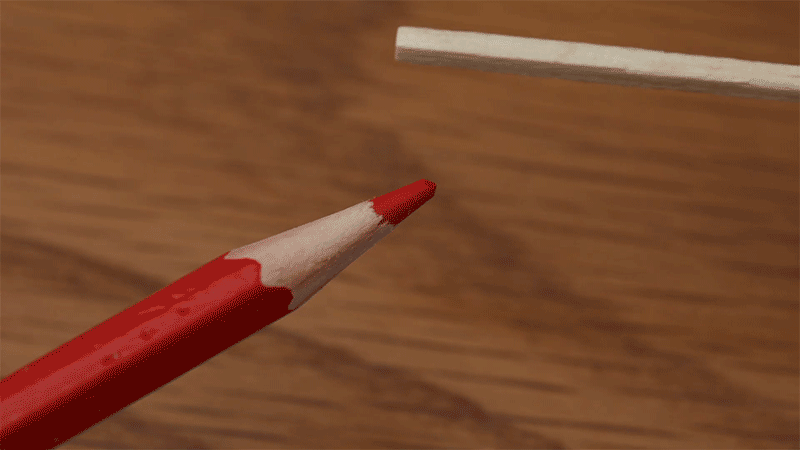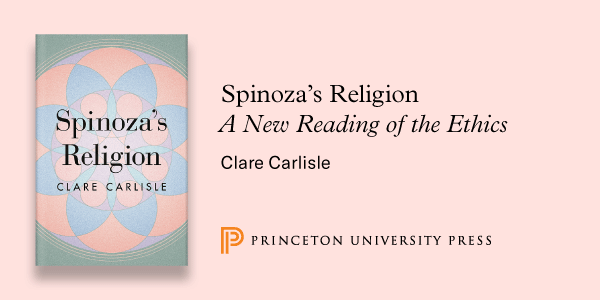The Value of Stepping Back from Current Events
It’s not unusual for philosophy professors to think it’s important to demonstrate to their students the relevance of course material to current events, both because of the importance of those events and also to maintain student interest. But there may be value in keeping a distance from today’s news and issues.
In a recent essay, Robert Talisse (Vanderbilt), concerned with belief polarization and other aspects of political discourse that lead disagreeing citizens to demonize each other, discusses the value of getting some distance from the heated disputes of the day:The key to mitigating belief polarization is to expand one’s sense of permissible doctrinal variation among one’s allies. Once one acknowledges that significant disagreements can persist among allies, it becomes easier to engage reasonably with one’s opponents…
The task calls for occasions of social distance. One must remove oneself from the pressures to conform to partisan expectations. Accordingly, one needs to separate from one’s allies and adversaries alike. One needs solitude, distance of the kind that permits one to grapple with political ideas that are not prepackaged in the idiom of contemporary partisanship. One needs to encounter ideas that can provoke thinking instead of partisan reflexes. This enables reflection that demonstrates that the spectrum of democratic opinion is both wider and deeper than what can be slotted into today’s political categories…
I am a political philosophy professor, so it may come as no surprise that I think one way to achieve distance is by reading moral and political thought written in other eras, addressed to unfamiliar audiences, and by grappling with unfamiliar problems. The key is to engage with such works as foreign to our own context, to see them as remote. We need to resist the impulse to pulverize everything into the present political idiom.
This proposal runs contrary to popular pedagogical trends that insist upon relevance to current social issues and the experiences of our students. This kind of relevance has value, of course. But it also involves costs. When everything is addressed to contemporary circumstances, we lose sight of the contingency of our current political landscape. We succumb to the temptation to see our own political moment as eternal. This robs us of opportunities to envision a political future where our present divides are obsolete, not because our opponents have been vanquished but because they have been changed.
You can read the whole essay here.
I’m curious if others have embraced this kind of “distancing” as an objective in their own teaching, or have adopted other approaches to help students remove themselves from conforming political pressures, or who even think this pedagogical aim is a mistake.
Related: Teaching Philosophy as the Search for Complication




C Thi Nguyen’s Boston Review essay “Polarization or Propaganda?” influences how I see this issue. If we see the issue largely in terms of polarization, then Talisse’s suggestion seems to make better sense than if we feel that our students are being subjected to propaganda. As Nguyen makes very clear in his wonderful essay, these issues are complicated and it is difficult to get clear on whether the issue is polarization or propaganda on a case by case basis. And though this doesn’t directly answer Justin’s question, Nguyen’s thinking made me more willing to consider the fact that aiming for distancing may not always be the best strategy in all cases.
Your concerns about propaganda seem compatible with what Talisse says. He holds that it isn’t ideal when “everything is addressed to contemporary circumstances”. That seems to leave plenty of room for addressing contemporary circumstances and for correcting false information about contemporary circumstances.
I think that stepping back from the polarizing issues can be quite an effective strategy. If the students are thrown into a new world or new issues for which their firmly-held ideology presents no easy answer, it becomes easier for them to transcend knee-jerk reactions.
I also find that much good can be done with discussions of current, polarizing issues, provided that one takes steps not to allow the thing to become an exercise in indoctrination or an opportunity for the students to retreat into the prejudices of their polarization. In particular, I think something like the following would be the start of a good checklist:
– Are the students given a genuine opportunity to consider views that differ sharply from those of the professor, without prejudice against dissenters? And do they have good evidence to believe that they are given that opportunity?
– Are the students given a sympathetic, steel-man version of the view on the issue that most of them do *not* currently accept, and that they are the *least* likely to have heard about sympathetically? (Polling one’s students on these things can help reveal the biases in the classroom and also the biases they have been exposed to before taking the course).
– Are there incentives built in to the class proceedings that reward those who take the time to consider the opposing viewpoint, and/or punish (temporarily and usually in some very small way) those who fail to engage carefully with what the other side is saying, especially when that other side is the underdog, so to speak, in that course?
It looks like the author is slipping a bit between two ideas: (i) distancing via stepping back from current events/current politics; (ii) distancing via removing oneself from the pressures to conform to partisan expectations. Distancing via (ii) needn’t involve distancing in the first sense. As the Tallise passage suggests, exposure to different viewpoints can have a mitigating role against pressures felt to conform to partisan expectations. And such exposure could be achieved (contra (i)) through exposure to current events/politics – just a broader spectrum of them.
I appreciated this:
I found the material about expanding the domain of permissible positions more interesting than the stuff on distancing.
I understand Talisse to be offering a pedagogy of political distance (to coin a term) as a solution to the problem of political polarization. The problem isn’t that we’re sometimes too close to the material we’re teaching; it’s that we’re too quick to rule other views out of bounds. And this is a bad model for our students.
Distance is a practical step we can take to break that cycle. And Talisse is surely correct that this pedagogy goes counter to the activist trend, which seems to be fairly popular among young academics today (though it’s difficult to know how much mere noise is generated by outlets like Twitter, Facebook, and Medium).
I side with Talisse on this front. Our role isn’t to proselytize or make new revolutionaries. And to the extent we do that, we contribute to the problem of political polarization (the PEW Research Center has good data on this in the U.S., going back to the 1990s). Higher education is a humbling experience, as it teaches us how much there is to learn about the world, and how subtle our relations with one another can be. We should be humble in facilitating that education.
Distance is a good first step, and if it became a pedagogical aspiration we might hope our fellow citizens became depolarized as a matter of habit. But if they do, it will be because we helped broaden their minds by teaching them how to thoughtfully consider other points of view.
I think that considering contemporary issues is great, but I also think it’s important to consider issues for which the students’ worldviews provide them with no obvious answers. Having them read thought from other eras is one splendid way to do this. Another is having them read about other eras and other nations, whose political situation and political problems are not are own. Another is having them consider hypothetical situations drawn from film or literature, particularly science-fiction and fantasy. Once students have practiced considering all sides of an issue in cases they are “distanced from”, they should be better fit to consider all sides of an issue in cases they are not distanced from.
I think there might be another unexpected benefit to this idea:
We are all constantly exposed to political discussion about today’s issues (in the news, social media, talking with friends, etc.). It can get quite boring.
I don’t really want to have yet another discussion about the ethics of COVID-19 vaccinations and I suspect a lot of my students feel the same (perhaps that is why their essays on the topic are so frequently so bad).
It may actually be a lot more exciting and engaging to think about an issue that isn’t relevant to today—to use your education as an escape from today’s issues.
Escapism is massively popular in our leisure pursuits (movies, tv, books). Why not use some of that popularity to get students thinking and learning about ideas?
Those ideas might turn out to be applicable to their lives and the present political situation later on, but why not hook people by offering an escape from the tedium of relevance and lived experience?
My experience is that polarizing political issues don’t provide the best opportunities for students to practice the critical thinking skills I want to help them develop, at least in the beginning and for the most part.
However, I don’t think the solution to this is to assign material that’s less relevant to their lives (because it’s from another era or for some other reason). What seems to me to have worked best, again, for helping students develop their critical thinking skills, is to have them practice reasoning about things they get but that don’t elicit the kinds of emotions that impede reasoning.
That being said, I think we should help students develop both critical thinking skills and the ability to apply these skills to topics they feel strongly about. I see these as separate objectives requiring different educational interventions. For critical thinking skills, practicing argument mapping seems to work best. For making critical thinking skills more resilient in the fact of strong emotions, the best activity I’ve been able to find is considering the opposite.
https://www.semanticscholar.org/paper/The-Scope-of-Debiasing-in-the-Classroom-Beaulac-Kenyon/40ef6e802e78d2cb62f78bd20e54c9f07d4e0129
I really enjoyed the essay and the discussion on this thread because I teach a lot of ‘intro to bioethics’ courses and I’m always worried that these classes focus too much on ‘new’ technologies, insinuating that ‘old’ technology is just uninteresting. I suspect that it would be fascinating to do an entire lecture course looking at the provision of basic sanitation, asking current students to use their philosophical skills to find the best arguments against sewage systems. My worry is that so many find the answer to this problem so obvious that they won’t engage in the thinking to get there. At least with ‘new’ questions, the thinking is more obviously hard. So, the real challenge here seems to me to be to find topics which are not polarised, but not ‘obvious’.
It seems to me that Talisse is trying to extrapolate from a minority case that doesn’t represent the experience of most citizens. The proportion of citizens who participate in democratic activity (demonstrations, canvassing, party assemblies, etc) is minute compared to the proportion who exhibit the trappings of polarized identity. Even if such polarization was an endogenous effect of such participation, that doesn’t explain the mass polarization of the majority that are democratically inert except for voting and sharing Facebook memes.
The gaping hole in his analysis is the non-democratic, exogenous media environment, especially in its contemporary digital form, and the historically removed approach that Talisse advocates is particularly ill-suited to address this.